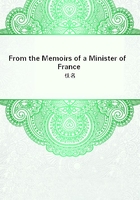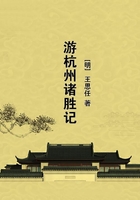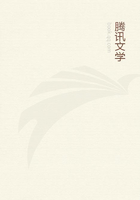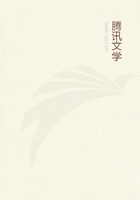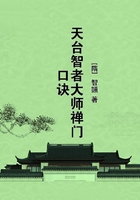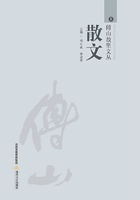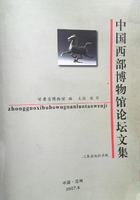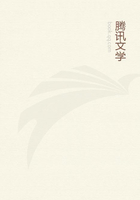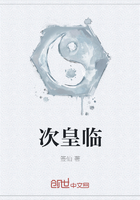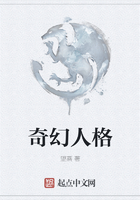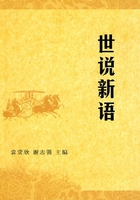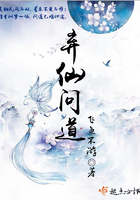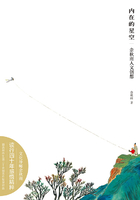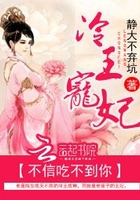I hate to be reminded of Pollock's Course of Time, and so do you; but every time I saw Jacks I would think of the poet's description of another poet by the name of G. G. Byron who "Drank early; deeply drank--drank draughts that common millions might have quenched; then died of thirst because there was no more to drink."
That fitted Jacks, except that, instead of dying, he came to Paloma, which was about the same thing. He was a telegrapher and station- and express-agent at seventy-five dollars a month. Why a young man who knew everything and could do everything was content to serve in such an obscure capacity I never could understand, although he let out a hint once that it was as a personal favor to the president and stockholders of the S. P. Ry. Co.
One more line of description, and I turn Jacks over to you. He wore bright blue clothes, yellow shoes, and a bow tie made of the same cloth as his shirt.
My rival No.2 was Bud Cunningham, whose services had been engaged by a ranch near Paloma to assist in compelling refractory cattle to keep within the bounds of decorum and order. Bud was the only cowboy off the stage that I ever saw who looked like one on it. He wore the sombrero, the chaps, and the handkerchief tied at the back of his neck.
Twice a week Bud rode in from the Val Verde Ranch to sup at the Parisian Restaurant. He rode a many-high-handed Kentucky horse at a tremendously fast lope, which animal he would rein up so suddenly under the big mesquite at the corner of the brush shelter that his hoofs would plough canals yards long in the loam.
Jacks and I were regular boarders at the restaurant, of course.
The front room of the Hinkle House was as neat a little parlor as there was in the black-waxy country. It was all willow rocking-chairs, and home-knit tidies, and albums, and conch shells in a row.
And a little upright piano in one comer.
Here Jacks and Bud and I--or sometimes one or two of us, according to our good-luck--used to sit of evenings when the tide of trade was over, and "visit" Miss Hinkle.
Ileen was a girl of ideas. She was destined for higher things (if there can be anything higher) than taking in dollars all day through a barbed-wire wicket. She had read and listened and thought. Her looks would have formed a career for a less ambitious girl; but, rising superior to mere beauty, she must establish something in the nature of a salon--the only one in Paloma.
"Don't you think that Shakespeare was a great writer?" she would ask, with such a pretty little knit of her arched brows that the late Ignatius Donnelly, himself, had he seen it, could scarcely have saved his Bacon.
Ileen was of the opinion, also, that Boston is more cultured than Chicago; that Rosa Bonheur was one of the greatest of women painters; that Westerners are more spontaneous and open-hearted than Easterners; that London must be a very foggy city, and that California must be quite lovely in the springtime. And of many other opinions indicating a keeping up with the world's best thought.
These, however, were but gleaned from hearsay and evidence: Ileen had theories of her own. One, in particular, she disseminated to us untiringly. Flattery she detested. Frankness and honesty of speech and action, she declared, were the chief mental ornaments of man and woman. If ever she could like any one, it would be for those qualities.
"I'm awfully weary," she said, one evening, when we three musketeers of the mesquite were in the little parlor, "of having compliments on my looks paid to me. I know I'm not beautiful."
(Bud Cunningham told me afterward that it was all he could do to keep from calling her a liar when she said that.)
"I'm only a little Middle-Western girl," went on Ileen, "who justs wants to be simple and neat, and tries to help her father make a humble living."
(Old Man Hinkle was shipping a thousand silver dollars a month, clear profit, to a bank in San Antonio.[)]
Bud twisted around in his chair and bent the rim of his hat, from which he could never be persuaded to separate. He did not know whether she wanted what she said she wanted or what she knew she deserved. Many a wiser man has hesitated at deciding. Bud decided.
"Why--ah, Miss Ileen, beauty, as you might say, ain't everything. Not sayin' that you haven't your share of good looks, I always admired more than anything else about you the nice, kind way you treat your ma and pa. Any one what's good to their parents and is a kind of home-body don't specially need to be too pretty."
Ileen gave him one of her sweetest smiles. "Thank you, Mr. Cunningham," she said. "I consider that one of the finest compliments I've had in a long time. I'd so much rather hear you say that than to hear you talk about my eyes and hair. I'm glad you believe me when I say I don't like flattery."
Our cue was there for us. Bud had made a good guess. You couldn't lose Jacks. He chimed in next.
"Sure thing, Miss Ileen," he said; "the good-lookers don't always win out. Now, you ain't bad looking, of course-but that's nix-cum-rous.
I knew a girl once in Dubuque with a face like a cocoanut, who could skin the cat twice on a horizontal bar without changing hands. Now, a girl might have the California peach crop mashed to a marmalade and not be able to do that. I've seen--er--worse lookers than you, Miss Ileen; but what I like about you is the business way you've got of doing things. Cool and wise--that's the winning way for a girl. Mr. Hinkle told me the other day you'd never taken in a lead silver dollar or a plugged one since you've been on the job. Now, that's the stuff for a girl--that's what catches me."
Jacks got his smile, too.
"Thank you, Mr. Jacks," said Ileen. "If you only knew how I appreciate any one's being candid and not a flatterer! I get so tired of people telling me I'm pretty. I think it is the loveliest thing to have friends who tell you the truth."

